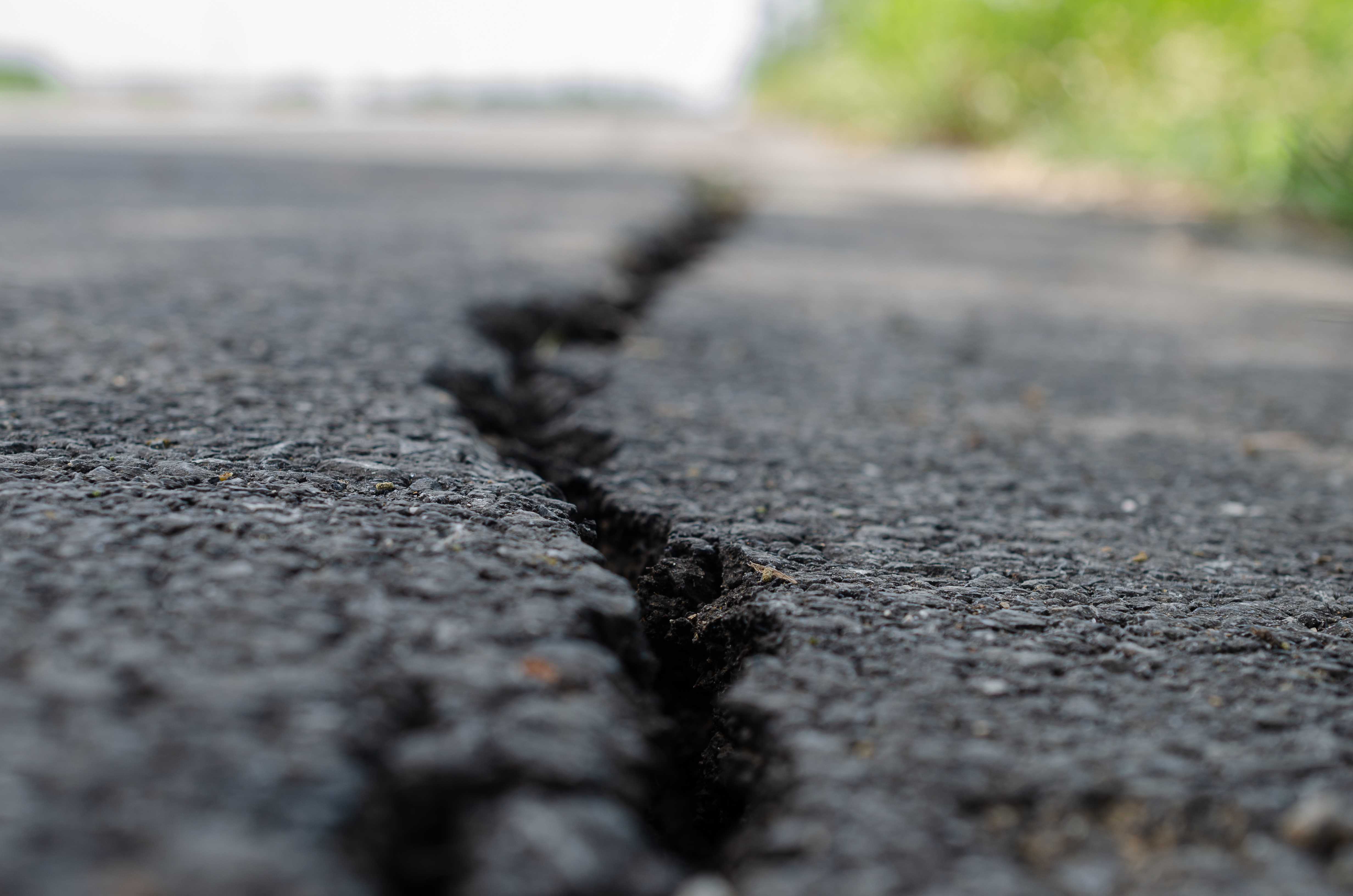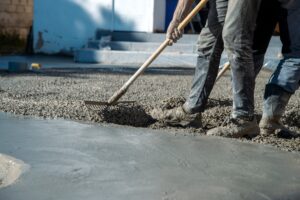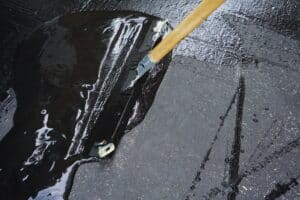Asphalt cracks are fairly inevitable. They form due to natural ground movement as well as temperature-driven contraction and expansion. Not only do cracks look bad in your asphalt parking lot or driveway, but they also are the first signs of future potholes. It’s best to catch asphalt cracks before they become potholes. Repairing asphalt potholes is a more extensive and expensive asphalt repair that can be more of a hassle to deal with. That’s why so much of asphalt maintenance revolves around cracks. It’s also why it is more cost-effective to deal with cracks as they come, as sealing driveway cracks or any cracks in asphalt can prevent them from growing over time.
Here are some of the main reasons for asphalt maintenance:
Trying to prevent cracks.
Monitoring working cracks.
Cleaning debris out of cracks.
Sealing and resealing cracks.
Repairing asphalt cracks.
Worrying about cracks.
Maintenance requires a balancing act. You don’t want to waste money on unnecessary asphalt parking lot repairs or ineffective treatments. But, you also don’t want to let asphalt deteriorate due to inattention.
With stresses on costs and so much time spent obsessing about asphalt cracks, it’s normal to wonder if there is a catch-all treatment that can protect and preserve asphalt with just one application. Many people think that the best bet would be sealcoating, as it’s already applied to the entire asphalt surface. Wouldn’t it just take care of filling asphalt cracks in one go? But, does sealcoating fill cracks?
Does sealcoating fill cracks?
Whether or not sealcoating can fill and fix a crack depends on how large the crack in the asphalt is. While sealcoating is great for filling really small hairline cracks up to 1/8th inch (3 mm) wide, sealcoat won’t fix driveway cracks of all shapes and sizes.
Asphalt sealcoating is not meant as an effective treatment for cracks any larger than 1/8th inch wide. Sealing driveway cracks and parking lot cracks any wider than 1/8th inch should be treated separately with a special material called crack sealant before sealcoating can be applied. Seal coating and crack sealing contractors won’t lay a seal coat over big cracks. It’s not engineered to stretch with larger cracks. Cracks need an elastic material that will expand and contract with the changes in crack width, while still maintaining a watertight seal.
Asphalt Crack Sealing vs Sealcoating
What’s the difference between crack sealant and sealcoating, also known as asphalt sealant or driveway sealer?
While sealcoating and crack sealing sound very similar — both are “sealing” something — they are very distinct maintenance services, using different materials with distinct intentions. To better understand how these two things work in tandem, let’s learn about each.
| Crack Sealing | Sealcoating | |
|---|---|---|
| Applied to? | Asphalt Cracks | Asphalt Surface, Over Sealed Cracks |
| Application Temp? | Hot | Cold |
| Dries? | Flexible | Harder |
| Protects Against? | Water and Debris | Oxidation, Water, Car Fluids |
| Seals Cracks? | 1/8th inch to 1 1/2 inches | Hairline Cracks up to 1/8th inch |
| How Often? | 18 Months to 2 Years | 3 to 5 Years |
What Pavement Sealcoating Actually Does
Sealcoating protects asphalt and enhances its look with a rich, dark black color. It protects against oxidation from sunlight, so that asphalt doesn’t become too brittle.
Asphalt sealer not only seals and protects asphalt’s surface, but also provides a durable barrier against water penetration and damage from vehicle oil and fuel drips.
Pavement sealer is applied as a viscous liquid, with squeegees and adds less than 1/8th inch to the surface of your asphalt.
Asphalt emulsion seal coat seals minor cracks (1/8th inch or less), prevents surface water from eroding the aggregated structure and causing surface deterioration. It also fills small voids in asphalt pavement and bonds loose aggregate to inhibit asphalt damage from raveling.
When sealcoat cures, the material is harder and less flexible than crack sealant. It doesn’t have the capacity to expand and contract as temperatures fluctuate, as much as cracks need.
What Pavement Crack Sealing Actually Does
Driveway and parking lot crack sealing is done with hot rubberized material that’s applied to prepared cracks. The hot crack filling material bonds to the surrounding asphalt and should be sealed the entire depth of the crack. Asphalt crack seal material expands and contracts, as asphalt does, with the temperature fluctuations.
Crack sealants protect and seal asphalt cracks, sealing them against water and debris. This prolongs your pavement’s usable life.
Seal Asphalt Cracks Before Cold Weather Months
It’s important to seal pavement cracks with rubberized asphalt crack filler before winter. When water gets into active cracks, it rests under the asphalt. When temperatures freeze and thaw the water, it expands and contracts over and over. This puts pressure on the pavement from below. Come springtime, what were previously harmless-looking pavement surface cracks can easily have morphed into a pothole.
A helpful article: Summit County Engineer | How do potholes form and why are they the worst in the spring?
When Cracks Are Too Big to Seal
Hot rubber asphalt crack sealant is made specifically for managing asphalt cracks. Despite this, not all cracks can be sealed sufficiently. Some cracks are too wide or widespread (alligator cracks) for crack sealing to be an effective inhibitor. Significant footages of cracked asphalt and or a large crack over 1 1/2 inches wide require additional attention.
When traditional crack sealer will not work, other materials and methods are needed to protect your asphalt. Depending on the situation, this could mean a specialized crack sealant called Mastic, more aggressive crack filling, or asphalt repair and patching procedures.
Read more: Cracked Asphalt: When to Seal vs Repair
Asphalt Crack Sealing, Sealcoating, and Crack Repair in 5 States
Does sealcoating fill cracks? Not big ones.
Despite this, both driveway sealer and crack repair are important. Every 18 months to two years, cracks should be sealed-about twice as often as sealcoating. If crack seals are broken, they need to be re-sealed. If you aren’t sure which type of asphalt maintenance services you need first, we can help.
Whether you need crack sealing, asphalt sealcoating, or both, Superior Asphalt, LC is your asphalt seal and repair partner. We can help you fix asphalt cracks and plan the most cost-effective pavement maintenance plan for your asphalt. Contact us for details. We serve 5 states: Arizona, Colorado, Nevada, Wyoming, and Utah!
Read More:




